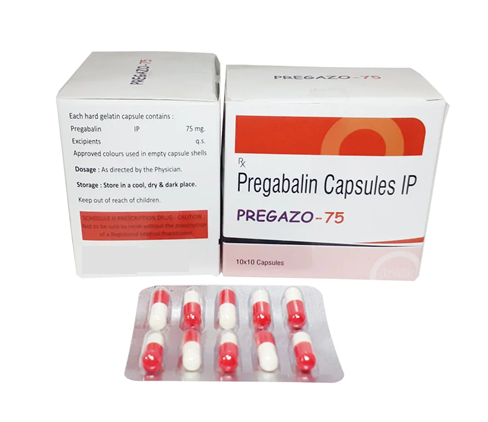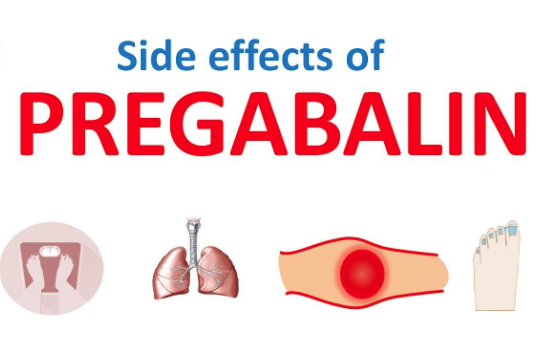Is Pregabalin a painkiller? What types of pain can it be used to treat?
Yes. Pregabalin is a novel central nervous system modulator that is used to treat peripheral and central neuropathic pain, fibromyalgia, knee OA pain, and to relieve acute postoperative pain.

Indications
Pregabalin is a novel analog of the neurotransmitter gamma-aminobutyric acid (GABA). It is an alpha2-delta (a2-d) ligand with analgesic, anticonvulsant, and anxiolytic activity. It is commonly used to treat epilepsy and anxiety disorders. In July 2004, Pfizer reported that the European Commission had approved Pregabalin (LyricaTM, Pfizer Inc., New York, NY) for the treatment of peripheral neuropathic pain in all EU member states and as an adjunctive therapy for partial-onset seizures in patients with epilepsy. The approval was based on the results of 10 trials involving more than 9,000 patients. In December 2004, the U.S. Food and Drug Administration (FDA) approved LyricaTM for the treatment of neuropathic pain associated with diabetic peripheral neuropathy (DPN) and postherpetic neuralgia (PHN).
In 2005, the drug was approved for the treatment of fibromyalgia. The European Medicines Agency (EMEA) approved pregabalin for the treatment of peripheral and central neuropathic pain in adults, as an adjunctive treatment for partial epilepsy in adults, and for the treatment of generalized anxiety disorder (GAD) in adults.
Mechanism of Action
Alpha2-delta is an accessory protein associated with voltage-gated calcium channels. Pregabalin binds strongly to the a2-d subunit, thereby modulating calcium channels and reducing the release of several neurotransmitters such as glutamate, norepinephrine, serotonin, dopamine, and substance P. In epilepsy, it is thought to stop seizures by reducing abnormal electrical activity in the brain. For neuropathic pain, it is thought to stop pain by interfering with pain messages traveling through the brain and down the spine. In anxiety, it is thought to prevent your brain from releasing chemicals that make you feel anxious.
Side Effects
Pregabalin is well tolerated, with the most common side effects being drowsiness, dizziness, ataxia, and weight gain. Drowsiness is a common adverse event with Pregabalin treatment, occurring in 20%–30% of patients, and the pain relief was more pronounced in patients who experienced the adverse reaction of drowsiness. However, Pregabalin still provided pain relief in patients who did not experience the side effect of drowsiness.
The most common adverse reactions in peripheral neuropathic pain studies were dose-related dizziness (22%–38%) and drowsiness (11%–25%), which did not resolve in about one-third of patients. These side effects pose a risk of accidental injury in the elderly. Other adverse reactions included dry mouth, fatigue, blurred vision, ataxia, peripheral edema, and weight gain, but not limited to patients with edema. Adverse events were generally mild or moderate.
It should be noted that even with regular doses and short-term use, pregabalin withdrawal reactions may occur. Sudden discontinuation of the drug may cause psychiatric symptoms such as nausea, headache, diarrhea, insomnia, and anxiety. It is recommended to gradually reduce the dosage over at least one week, always pay attention to changes in the patient, and seek medical attention in a timely manner.
References:
[1] ATTAL N. Is pregabalin ineffective in poststroke pain?[J]. PAIN®, 2011, 152 5: Pages 969-970. DOI:10.1016/j.pain.2011.02.023.
[2] NANNA B FINNERUP Troels S J. Clinical use of pregabalin in the management of central neuropathic pain.[J]. Neuropsychiatric Disease and Treatment, 2007, 3 6: 885-891. DOI:10.2147/ndt.s1715.
[3] GAJRAJ N M. Pregabalin for pain management.[J]. Pain Practice, 2005, 5 2: 95-102. DOI:10.1111/j.1533-2500.2005.05205.x.
[4] HAYAHITO ISHIKAWA. Pregabalin withdrawal in patients without psychiatric disorders taking a regular dose of pregabalin: A case series and literature review.[J]. Neuropsychopharmacology Reports, 2021, 41 3: 434-439. DOI:10.1002/npr2.12195.
You may like
Related articles And Qustion
See also
Lastest Price from Pregabalin manufacturers

US $0.00-0.00/KG2025-11-27
- CAS:
- 148553-50-8
- Min. Order:
- 1KG
- Purity:
- 98
- Supply Ability:
- 10000KGS

US $0.00-0.00/KG2025-09-16
- CAS:
- 148553-50-8
- Min. Order:
- 1KG
- Purity:
- 99%
- Supply Ability:
- 1T





